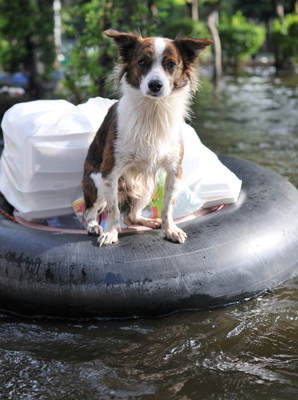Leptospirosis is a disease that infects dogs, humans and other animals. The organism that causes the disease is a type of bacterium called spirochete. Leptospirosis is spread by recovered animals that shed the spirochete in their urine for months to years following infection. Exposure to the disease usually occurs in the environment from contaminated water, food, soil, or vegetation. The Leptospirosis organism penetrates through the interior lining of the mouth (mucosa) or through injured skin. Wild animals, especially rats, are carriers of the disease.

Symptoms of Leptospirosis begin to appear about 1-2 weeks after exposure. Signs associated with the disease are fever, depression, vomiting and a reluctance to move. Loss of appetite, dehydration, and weight loss are also noticeable symptoms. The spirochete reproduces in the kidney and if left untreated, death results from kidney failure.
Leptospirosis is a serious disease and requires veterinary treatment. Intensive care with fluid therapy and high doses of antibiotics are essential. Even after a dog is clinically cured, he / she can still shed the organisms in the urine. At this point, the animal becomes a chronic carrier of the disease.
Leptospirosis vaccine is sometimes combined and administered with the distemper vaccine. Consult your veterinarian for the vaccination program that is best suited for your dog.

